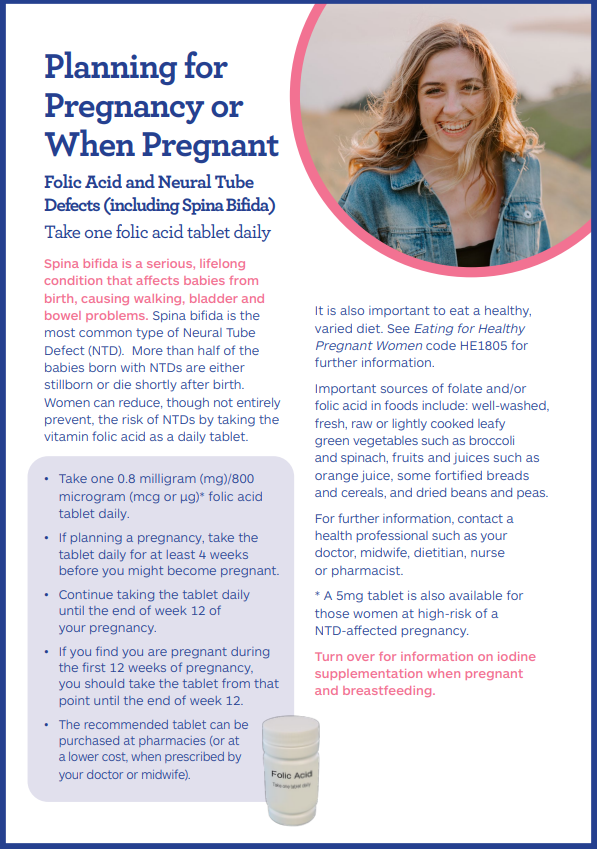Iodine is called an 'essential nutrient' because the human body can’t make it on its own and we must get it from our diet. Iodine is vital for normal growth and for brain development. It helps the thyroid gland to make thyroid hormones. These are important for the growth of bones and nerves, and affects how proteins, fats and carbohydrates are used in the body. As iodine is essential for the development of the brain and nervous system, it's especially important before birth and in babies and young children. Learn more about the importance of iodine and which foods contain iodine.
Why are iodine tablets necessary during pregnancy and breastfeeding
Most people can get enough iodine from eating a healthy, balanced diet. However, during pregnancy and breastfeeding, this isn't enough to support the development of your baby. Therefore pregnant people need to take iodine tablets.
- Humans store iodine in the thyroid gland and during pregnancy the thyroid is very active, producing about 50% more thyroid hormones. Pregnant people need extra iodine while they're pregnant to produce enough hormones to support the healthy development of the unborn baby.
- Thyroid activity returns to normal during breastfeeding but an iodine supplement is recommended because breast fed infants get all of their iodine from breastmilk.
- As it can take time to build up the higher level of nutrients needed for a baby’s healthy development, it's recommended you start taking iodine when you're planning a pregnancy. If you're not getting enough iodine before pregnancy you may not have enough stored for the later stages of pregnancy. This is especially important if you are at risk of iodine deficiency. Read more about who is at risk of iodine deficiency.









